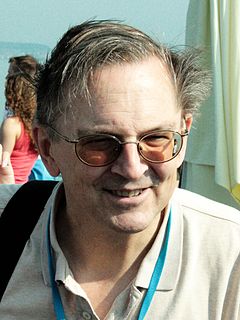A Quote by Agatha Christie
Related Quotes
Lately, however, on abandoning the brindled and grey mosquitos and commencing similar work on a new, brown species, of which I have as yet obtained very few individuals, I succeeded in finding in two of them certain remarkable and suspicious cells containing pigment identical in appearance to that of the parasite of malaria. As these cells appear to me to be very worthy of attention ... I think it would be advisable to place on record a brief description both of the cells and of the mosquitos.
Now, among the heresies that are spoken in this matter is the habit of calling a grey day a "colourless" day. Grey is a colour, and can be a very powerful and pleasing colour.... A grey clouded sky is indeed a canopy between us and the sun; so is a green tree, if it comes to that. But the grey umbrellas differ as much as the green in their style and shape, in their tint and tilt. One day may be grey like steel, and another grey like dove’s plumage. One may seem grey like the deathly frost, and another grey like the smoke of substantial kitchens.
I've played a lot of villains. The villains are always fun because you can just go fractionally bigger than life. It's always a grey area because you don't want to end up mustache-twirling and making them a little false, but you always get to play a little more, whereas the lead guy has to be a little more straight.
To me, grey is the welcome and only possible equivalent for indifference, noncommitment, absence of opinion, absence of shape. But grey, like formlessness and the rest, can be real only as an idea, and so all I can do is create a colour nuance that means grey but is not it. The painting is then a mixture of grey as a fiction and grey as a visible, designated area of colour.
Most of our brain cells are glial cells, once thought to be mere support cells, but now understood as having a critical role in brain function. Glial cells in the human brain are markedly different from glial cells in other brains, suggesting that they may be important in the evolution of brain function.




































